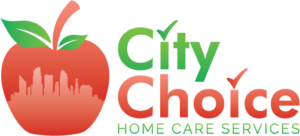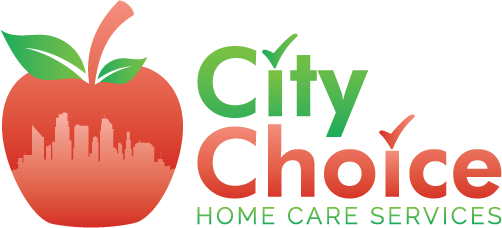Home health aides are vital for providing care services and support to those in need. However, the role comes with certain restrictions. Therefore, caregivers and clients must understand what exactly a home health aide (HHA) does and doesn’t do.
Let’s explore ten aspects of care that a home health aide is not permitted to carry out. This will allow you to have an informed view of these services before making any decisions regarding personal care.
- Prescribe or Administer Medication
While HHAs can assist with a range of daily living activities, they are prohibited from prescribing or administering medication. This is because home health aides are not qualified medical professionals. Therefore, they do not have the necessary knowledge and training to properly assess a patient’s condition and prescribe needed medication. As medication errors can have serious and potentially life-threatening consequences, they must be handled by qualified medical professionals only.
- Perform Invasive Medical Procedures
Invasive medical procedures are medical interventions that require access to a patient’s body through incisions, punctures, or other methods that penetrate the skin or mucous membranes. These procedures may be diagnostic or therapeutic and may involve the use of specialized instruments, equipment, or implants.
Typically, HHAs are not allowed to perform invasive medical procedures. These tasks are usually within the scope of practice of licensed healthcare professionals, such as nurses or doctors.
However, HHAs may assist with some non-invasive medical procedures, such as taking vital signs, providing medication reminders, and helping with mobility exercises under the supervision of a licensed healthcare professional.
- Diagnose Medical Condition
It’s crucial to note that Home Health Aides are not licensed medical professionals. They are not permitted to diagnose any medical conditions or provide medical advice. Their primary role is to provide essential assistance with activities of daily living (ADLs), such as bathing, dressing, and medication management.
They also play a critical role in monitoring and reporting changes in a patient’s health status to the appropriate healthcare providers to ensure the patient is receiving the necessary care.
- Provide Wound Care
HHAs can provide basic first aid to patients, which includes attending to minor cuts, scrapes, and bruises. However, their authority is limited when it comes to more serious injuries, such as open wounds that require wound care.
While they may be allowed to change dressings on open wounds, your HHA is not authorized to provide any care beyond this level. This is where a specialized healthcare professional, such as a nurse or physician, must step in.
- Provide Medical Advice
Although HHAs may have experience working with patients with certain medical conditions, they must adhere to their scope of practice and only assist with activities of daily living, such as bathing and dressing.
To ensure quality care and to prevent any potential harm, patients should seek medical advice and recommendations only from qualified medical professionals.
- Perform Physical Therapy or Rehabilitation
To perform physical therapy or rehabilitation services, an HHA would need to obtain additional certification or licensure in a relevant healthcare field, such as physical therapy, occupational therapy, or speech therapy. These certifications and licenses typically require extensive education and training, as well as passing national exams and meeting ongoing continuing education requirements.
- Make Changes in the Patient’s Treatments
HHAs are not authorized to assess a patient’s overall well-being or recommend changes in treatment based on their assessment.
This is because the task requires specialized knowledge and training that is typically within the scope of practice of licensed healthcare professionals, such as nurses, doctors, or therapists. These professionals have the education and training to interpret clinical data, identify potential complications, and develop and implement a comprehensive care plan that addresses the patient’s specific needs.
- Handle Hazardous Materials
Chemicals that HHAs may encounter include cleaning agents, disinfectants, and medications. These chemicals can be hazardous if they are not used correctly. For instance, improper disposal of chemical reactions caused by the mixing of chemicals can cause significant damage to the client or their property.
Similarly, biological waste, such as bodily fluids, tissues, or contaminated medical equipment, must be handled with caution to prevent the spread of infection or disease.
HHAs who are required to use hazardous materials as part of their job duties are typically required to obtain additional certification or training to ensure that they can handle these materials safely and effectively. This may involve completing specialized training programs or obtaining certification from recognized organizations.
- Provide Extensive Housekeeping Services
Home health aides can assist clients with light housekeeping tasks such as sweeping, dusting, and laundry. However, it is important to note that they are not authorized to provide in-depth cleaning services or perform repairs on the patient’s home.
- Provide Services Outside Their Scope Of Practice
As per the requirement of New York State Public Health Law Section 3605-c, “Home Health Aides are not allowed to provide services outside their scope of practice, as defined by the New York State Department of Health.“
According to these regulations, HHAs are only required to provide personal care services, assist with activities of daily living, and perform basic health-related tasks under the supervision of a licensed healthcare professional.
Wrapping Up
While home health aides can play a critical role in the care of patients, their responsibilities are limited to non-invasive tasks, such as medication reminders, meal preparation, and light housekeeping service. Home health aides are not trained or licensed to perform invasive medical procedures or diagnose medical conditions. Therefore, if a patient requires medical advice or a diagnosis, it is crucial to seek the expertise of a licensed healthcare professional, such as a physician or nursing practitioner. This will ensure that the patient receives the appropriate care and treatment necessary for their specific condition. Collaboration between healthcare professionals and home health aides is key to providing comprehensive and effective care for patients in need.



